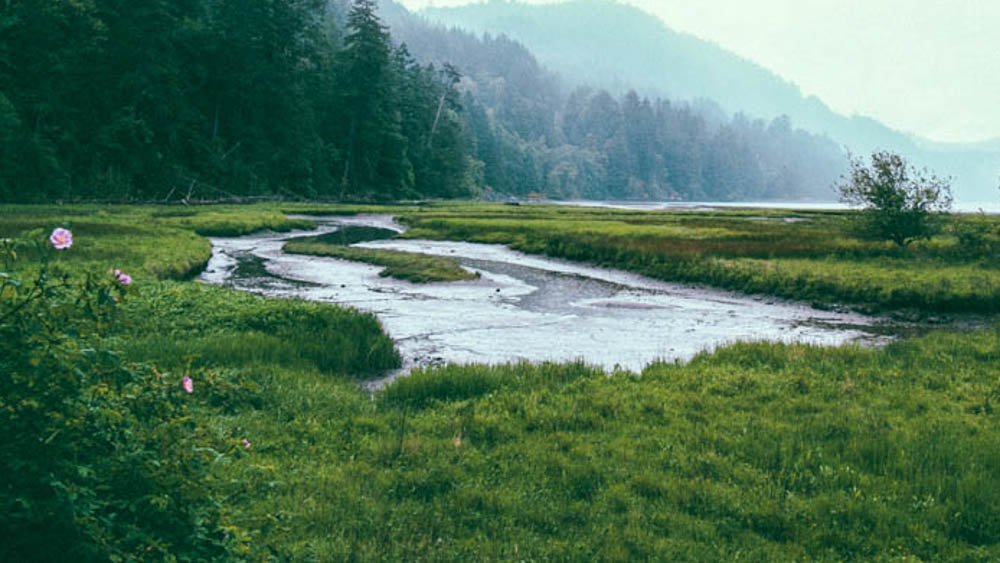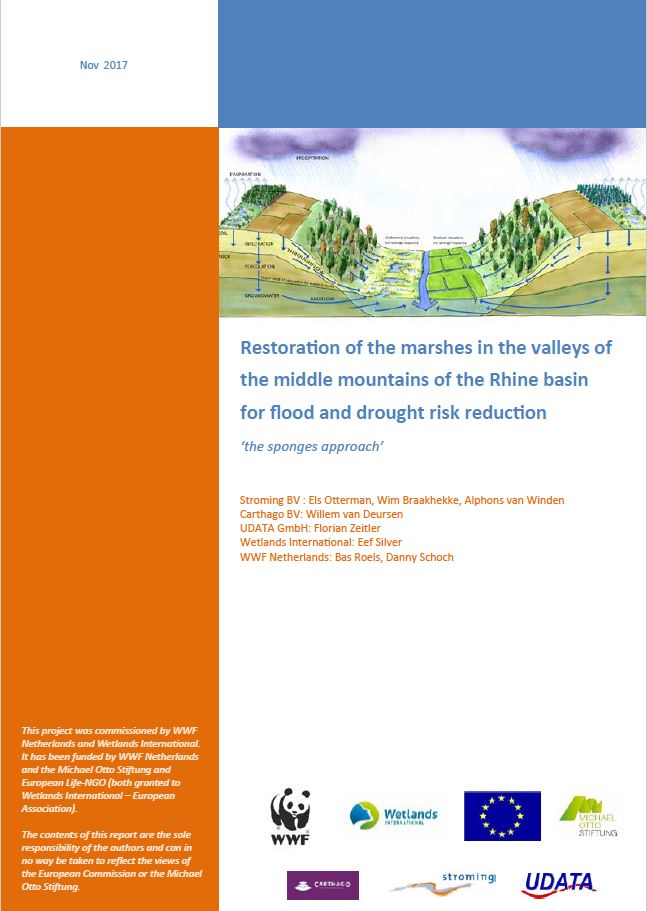
Restoration of the sponge function in wetland soils as a measure for integrated river basin management in the Rhine catchment
Urbanisation and agriculture in the Rhine basin have driven loss of water storage capacity in floodplains. Changing precipitation patterns are expected to lead to increased peak flows as well as critically low water levels. Restoration of the sponge function in wetland soils in the sub basins of the Middle Rhine can be a nature-based solution that can help offset flood risks with potential impacts from local to basin scale. This can help deliver multiple policy objectives and societal benefits.
This report presents the results of the recent study on the costs and benefits of restoration of the sponge function in wetland soils in the middle mountains of the Rhine basin for flood and drought risk reduction. The publication explores the possibilities and impacts of a Natural Water Retention approach. This approach does not involve the use of basins or polders to retain water but proposes the restoration of floodplains and (newly developed) wetlands and peatlands: “natural sponges”. This measure should be implemented at well-chosen locations in the middle-mountains, where much precipitation occurs.
A natural sponge is a natural marsh- or peatland which temporarily stores water in the soil and on the soil. The resistance offered by the soil and by the rough natural vegetation prevent the water to quickly run-off into a stream or river. “Natural sponges” therefore capture water at a very early stage, i.e. before it reaches (or transforms into) a stream. Technical retention basins, on the other hand, capture water which already is part of the main river channel.
The study analysed the potential of restoring natural sponges for flood management and carbon sequestration as one nature-based option in the toolbox for integrated river basin management. Positive effects for biodiversity, water quality and socio-economic developments can be expected. This study is a generic analysis of the costs and benefits associated with this type of measure. These aspects need to be assessed more in detail to draw conclusions for potential impacts at different levels.
An analysis of key stakeholders upstream provides insights to the ‘soft challenges’ to nature-based river management. Opinions differ on the scale of impact that can be achieved across the basin and highlight the need for better transboundary engagement to resolve differences in perspective and sharing of knowledge. Generating stakeholder sympathy and influencing perceptions are crucial aspects to create awareness of the overlooked place and role water has in our landscape. In addition, crossing sectoral borders and recognizing the interlinkage between cultural traditions and land use is a prerequisite to initiate dialogue on land use change.

